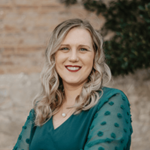Help Students Discover Their Potential
The school counseling program at Shenandoah University prepares students to become professional school counselors equipped to support the academic, career and personal/social development of children and adolescents in PreK-12 educational settings. Through a comprehensive curriculum covering counseling theory, counseling techniques, and child and adolescent development, students gain the knowledge and skills necessary for effective school counseling practice. Students will engage in practicum and fieldwork requirements focused on developing their counseling orientation and theory.
This program is seeking approval from the Virginia Department of Education. This program will seek CACREP accreditation.
Learn More About This Program
Program Goals
- Prepare counseling professionals with a breadth of knowledge and skills for prevention, intervention, and advocacy in private or public PreK-12 school settings.
- Cultivate a school counselor professional identity and disposition aligned with ethical practice and the ASCA Code of Ethics.
- Foster the ability to critically evaluate and consume research through a social justice lens to inform evidence-based school counseling practices.
- Prepare counseling professionals to advocate for school needs at the individual, community, and policy levels.
- Promote the development of critically reflective practitioners focused on wellness, self-care, and professional quality of life.
Student Learning Outcomes
- Students will develop and maintain a strong counselor identity rooted in the profession’s ethics, values and principles.
- Students will be able to demonstrate competence in working ethically with clients of diverse backgrounds across the lifespan.
- Students will be able to apply counseling skills and effectively deliver counseling interventions aligned with their theoretical orientation.
- Students will be able to analyze their own social location and lived experience, while mastering strategies to bracket and challenge
- Students will be able to evaluate counseling specific assessments, including career assessments, and administer assessments in the best interest of their clients.
- Students will be able to design a holistic counseling practice that aligns with their theoretical orientation and remain aligned with the Shenandoah University mission of being a lifelong learner committed to continuing education and service work.
- Students will be able to demonstrate an understanding of their role in an interdisciplinary team.
- Students will be able to present scholarly research findings.
- Students will be able to be employed as a school counselor.
- Students will be able to pass the Praxis exam.
Classes
Courses
All courses and their descriptions within the school counseling program are listed below. Please note the asterisks indicating their delivery method and which courses are electives.
*S Courses are online-synchronous
*A Courses are online-asynchronous
**Courses are electives
| Course Number | Course Title | Credit Hours |
|---|---|---|
|
COUN 501 |
Basic Counseling Skills | |
|
COUN 519 |
School Counseling Ethics and Profession | |
|
COUN 503 |
Group Counseling | |
|
COUN 505 |
Lifespan Counseling*A | |
|
COUN 506 |
Counseling Theory | |
|
COUN 507 |
Research Seminar I*A | |
|
COUN 508 |
Addiction Counseling*S | |
|
COUN 510 |
Career Counseling*A | |
|
COUN 511 |
Multicultural Counseling*S | |
|
COUN 512 |
Grief, Loss, Trauma, and Crisis*S | |
|
COUN 514 |
Human Sexuality in Counseling*S | |
| OUN 517 | Research Seminar II*A | |
|
COUN 527 |
Research Seminar III*H | |
|
COUN 550 |
Counseling Children and Adolescents** | |
|
COUN 560 |
Counseling Veterans and Military Personnel** | |
|
COUN 570 |
Case Management** | |
|
COUN 520 |
School Counseling Leadership, Advocacy and Consult | |
|
COUN 602 |
Systems Concepts in Counseling *A | |
|
COUN 522 |
Classroom Management | |
|
COUN 525 |
School Counseling Practicum | |
|
COUN 650 |
Field Placement I | |
|
COUN 660 |
Field Placement II |
| Course Number | Course Title | Credit Hours |
|---|---|---|
|
COUN 502 |
Professional Counseling Ethics*A | |
|
COUN 504 |
Clinical Mental Health Counseling as a Profession*A | |
|
COUN |
603 Assessment Processes in CMHC*A | |
|
COUN 601 |
Diagnostic Processes in Counseling* |
Meet The Faculty
 Brittany Sager-Heinrichs, Ph.D.
Brittany Sager-Heinrichs, Ph.D.
Program Director, Division of Counselor Education
Admissions Requirements
The school counseling program admission requirements include:
- A completed application submitted through the Shenandoah University application portal located on the clinical mental health counseling website.
- A completed bachelor’s degree from an accredited college or university with a recommended minimum grade point average of 3.0 on a 4.0 grade scale.
- Official transcripts from all colleges and universities attended (or previously attended).
- Two letters of recommendations that indicate applicant’s ability to participate in the rigors of graduate school as well as the traits applicants possess to be a future allied health practitioner.
- A writing sample crafted as a response to a prompt.
- International students may be required to meet additional requirements.
- State and federal background checks.
- Personal liability insurance from the start of the program.
- Adherence to Shenandoah’s School of Health Professions and individual practicum and internship sites immunization and vaccination policies.
*Students who meet academic requirements will be invited to participate in an interview with Counselor Education Division faculty members.
To ensure you meet eligibility for licensure, please visit the Virginia Department of Education.